Political transition years call for creative, informed and active advocacy. Individuals can make a difference in the policy process by having a strategic plan, forming a professional relationship with their elected official, and showing passionate concern and articulation of your issue. By following these fundamental steps, you can be an agent for change.
- Plan your strategy
You may only have a small window of opportunity to speak to the Legislator, so it is imperative that you have a well organized approach. Know your own organizations’ goals and objectives following the “SMART” criteria (Specific, Measurable, Achievable, Realistic, and Timely), formulate your position on the issue, research the Legislator’s background; including how they have voted on similar issues, and explain why your issue should be a priority.
- Make an Appointment a week in advance
Legislators are extremely busy and other advocates and lobbyists form a constant parade in and out of their offices. Contact their secretary, state your name and organization, explain the purpose of your visit, identify who will attend, and be flexible on the timing. Invite their staff to participate in the meeting to enhance your rapport with that office.
- Be punctual, patient, and persistent
Their schedules are hectic and ever changing, so be prepared to wait, ask where to locate them in the Capitol if they are not in the office at your scheduled time, and be willing to reschedule. If it becomes certain that your Legislator will not be able to keep the meeting, simply sign the visitor’s log and ask to reschedule.
- Memorize your script
You should rehearse your message and the questions you want answered and be able to communicate succinctly in less than two minutes. Leave related materials including a one-page fact sheet, brochures about your organization, and your contact information with the staff in case they have questions or need additional information after your visit.
- Make a formal introduction
When you do have the opportunity, introduce yourself and your organization, explaining how it empowers your constituents and communities.
- State your case and ask for a commitment
You have a limited window of opportunity to express what you want and become their expert on the subject, so make your statement concise, honest, and persuasive. Use data and personal stories from their district to demonstrate credibility and gain acceptance. If there is a bill you want to educate him or her on, have a copy of the bill ready.
- Show your appreciation and dedication by following up
Immediately following your meeting, you should send a thank you letter that reiterates your issue, acknowledges their dedication to their constituents, provides any information or clarification that was asked for during the appointment, and offers your future assistance.
- Do not lobby
As a non-profit organization, you must be careful not to cross lobbying lines. You can educate on your issue, but you cannot “call to action” (Alliance for Justice) by asking them to vote yes or no on a bill. For more information on lobbying and advocacy, visit www.allianceforjustice.org.
- Don’t get discouraged
Making policy change and building rapport requires time and effort. It will take several visits, possibly sessions, to establish a relationship, make your points heard, and become the expert to your elected official. You should alternate your contact with calls, visits, and letters. Persistence, integrity and passion will make you a successful advocate for change.
- Ask for support
Do not let an opportunity to provide information pass by because you are unsure or uncomfortable. Be courageous enough to ask for support from professionals in your arena when you are in doubt. Feel free to call ACT Missouri for support on issues surrounding advocacy. Having support will boost your confidence and enhance your relationship with the Legislator you are working with.
Speak Up, Speak Out, Speak Hard: A Primer on Effective Advocacy Strategies, ACT Missouri, 2009


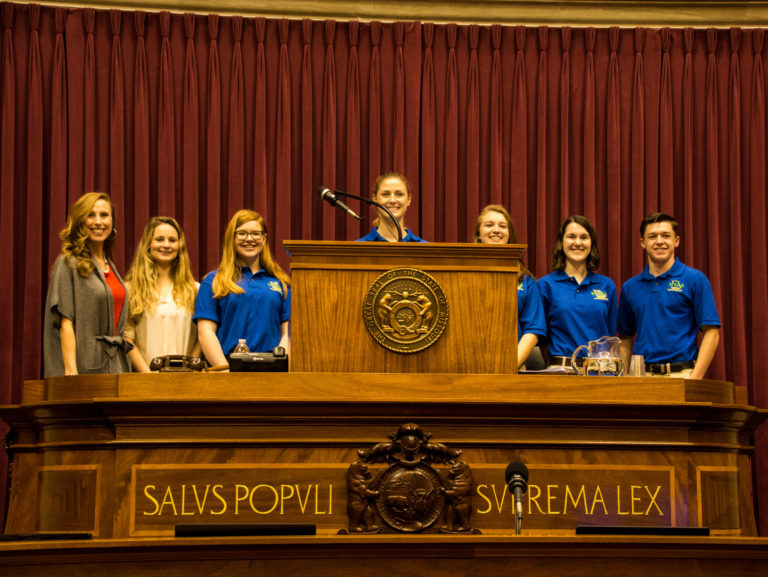

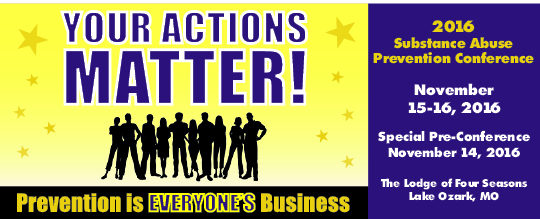
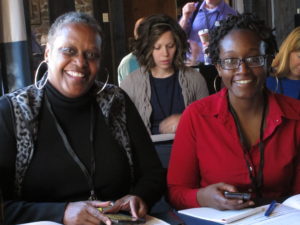
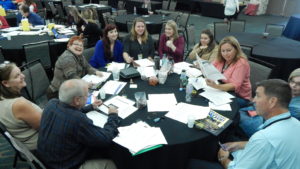

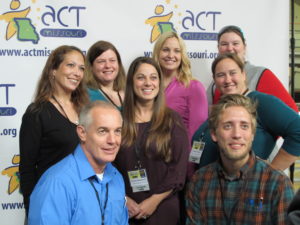
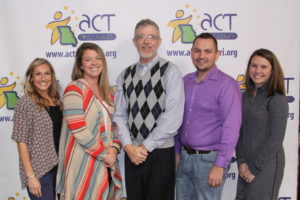
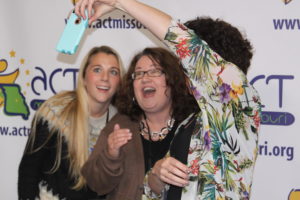 humor, his experience as a law enforcement officer, and the latest trends and data available on youth marijuana use. The evaluations summed up the conference’s success with 56% rating the conference as “excellent” and 36% rating it “good”. Many attendees exclaimed that this was the best conference to date!
humor, his experience as a law enforcement officer, and the latest trends and data available on youth marijuana use. The evaluations summed up the conference’s success with 56% rating the conference as “excellent” and 36% rating it “good”. Many attendees exclaimed that this was the best conference to date!


